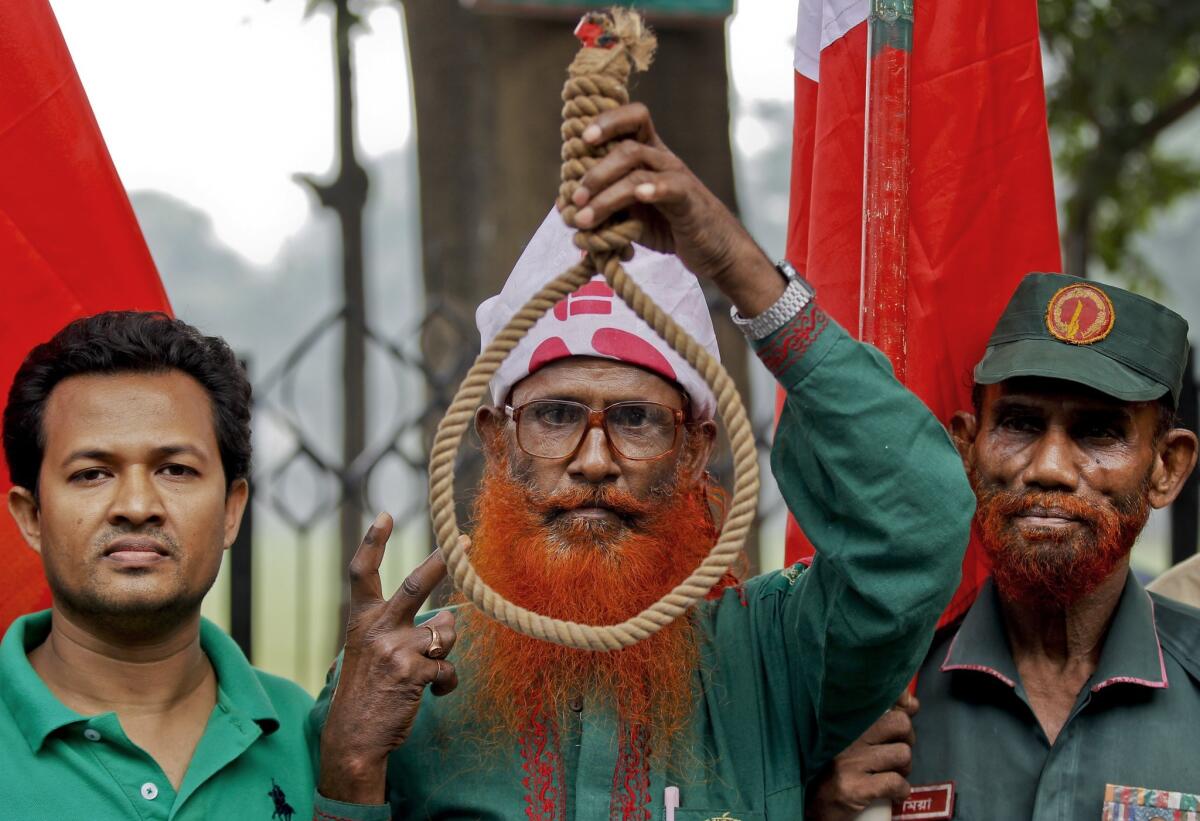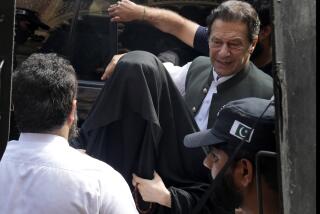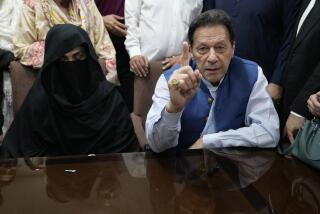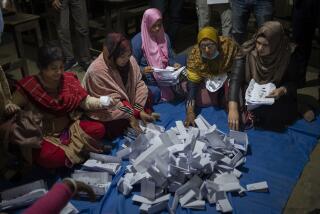Bangladesh’s high court upholds death sentences for 2 opposition leaders; protests planned

Bangladeshi activists who support capital punishment for war criminals rally outside the Supreme Court in Dhaka on Wednesday ahead of a verdict that upheld the death sentences of two opposition leaders.
Bangladesh’s Supreme Court on Wednesday upheld the death sentences imposed on two opposition leaders for war crimes committed during the nation’s 1971 war of independence.
The court rejected the appeal of Ali Ahsan Mohammad Mujahid of the Jamaat-e-Islami party and Salauddin Quader Chowdhury of the Bangladesh Nationalist Party, who were convicted in 2013 of various charges that included crimes against humanity.
The two men face death by hanging, though their principal attorney, Khandker Mahbub Hossain, said the government “can pardon the convicts if it wants or the convicts can seek presidential clemency.”
Jamaat-e-Islami called for a 24-hour strike on Thursday to protest the decision on Mujahid’s appeal. The government ordered that websites such as Facebook, WhatsApp and Viber be blocked in an apparent attempt to tamp down protests.
Bangladesh gained independence from Pakistan in 1971 after a war that left several million people dead. A controversial special war crimes tribunal has convicted more than a dozen people for various crimes related to the bloody conflict, which also saw widespread rapes and forced religious conversions.
A top official in Jamaat-e-Islami, Muhammad Kamaruzzaman, was hanged in April for crimes against humanity; another leading party figure, Abdul Quader Mollah, was executed last December after being convicted by the tribunal.
Jamaat-e-Islami worked against Bangladesh’s independence, collaborating with Pakistan and its military. It was accused of participating in genocide in the killings that followed the rebellion. But its followers view the tribunal’s work and the executions as politically motivated retribution.
Mujahid, the leader of a group of fighters known as Al Badr, was convicted of charges that included planning and instigating the killings of intellectuals and professionals toward the end of the war of independence.
Chowdhury was convicted of genocide and of the murder of several people.
Kader is a special correspondent.
ALSO:
Boko Haram blamed for Nigeria explosion that killed 32 and injured 80
Paris police launch deadly raids and prepare to extend state of emergency
Islamic State boasts of killing two captives, posts image of crude bomb linked to downed jet
More to Read
Start your day right
Sign up for Essential California for news, features and recommendations from the L.A. Times and beyond in your inbox six days a week.
You may occasionally receive promotional content from the Los Angeles Times.






